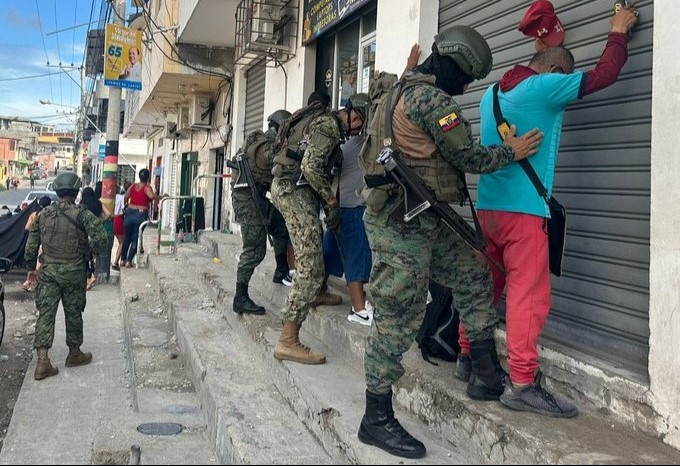
A group of armed individuals seized control of TC Televisión station in Guayaquil, Ecuador, attempting to take the staff hostage. Ecuador’s national police swiftly regained control, arresting the attackers. This incident occurred amid President Daniel Noboa’s efforts to combat organized crime, just two months into his term, focusing on opposition to drug cartels.
VIDEO
President Noboa declared a state of emergency after the escape of notorious drug trafficker Jose Adolfo Macias Villamar, alias Fito. Prisons, often influenced by criminal gangs, became a focal point for government intervention. Some prisons faced armed takeovers, with reports extending to the coastal regions and even Quito, though the latter remains unconfirmed.
Ecuador has grappled with a growing security crisis, exacerbated by criminal organizations establishing a presence near the coast and the key narcotics hub of Guayaquil. The country’s use of the U.S. dollar and weaker institutions have attracted cartels from Colombia, Mexico, and other nations.
In 2021, a significant portion of cocaine seized in Central and Western Europe originated from Ecuador, doubling since 2018. The drug trade has impacted the economy, traditionally relying on oil and agriculture. Despite not being a major narcotics producer, the banana industry, crucial to Ecuador’s exports, is exploited for drug transportation.
The country faces a turning point, as allowing the drug trade to persist could transform its relatively small economy, making it dependent on such exports and related industries. President Noboa’s administration is navigating a critical juncture in Ecuador’s history.
Leave a Reply